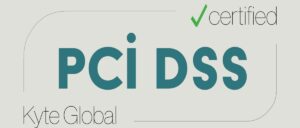
| Stephen Yiu is the Chief Investment Officer at Blue Whale Capital and Lead Manager of the Blue Whale Growth Fund. Stephen co-founded Blue Whale Capital with Peter Hargreaves, co-founder of Hargreaves Lansdown, in 2016. The Blue Whale Growth Fund was launched in September 2020 and is a long-only global equity fund focusing on developed markets. Stephen adopts a high conviction, active approach based on bottom-up, fundamental research. |
When we look over the last few months there has been a plethora of news surrounding rising prices. From food to fuel, everyday essentials are costing more. Conversely, there has been little talk of rising wages to combat this. Some altruistic companies may offer to raise wages in line with the headline rate of inflation, but few will be offering rises beyond this as the possible squeeze on profits from rising costs of doing business, cause management to be more cautious.
Inflation, both good and bad
When we think about inflation, it is important to look at what is considered good and bad inflation – the Bank of England aims for a small amount of inflation of roughly 2% per annum, so it can’t be all bad! Good inflation can simply be defined as wage increases. As people’s disposable income increases, their discretionary spend goes up, and money is circulated round the economy delivering economic growth. Bad inflation is where the price of essential goods and services increases (usually due to a shortage of supply) decreasing the amount of discretionary spend for the consumer. Essential goods and services are quite often produced from outside one’s home economy and therefore the essential spend is not recirculated internally leading to little or no economic growth.
Stagflation is the situation we find ourselves in presently – a triumvirate of economic malaise where bad inflation (essential price rises) is taking hold whilst good inflation (wage increases) is lagging at best (and lacking at worst), and economic growth is slowing.
Investors and savers will of course be worried. Those with high cash deposits will be seeing their savings eroded by a few percent a year (inflation is approaching 10% this year), whilst investors will be wondering what the best options are for their portfolio as companies struggle with the rising costs of doing business.
Look to the margin
As the cost of doing business rises, it would make sense to look at those companies whose external costs (that are out of their control) remain comparatively low compared to their total revenue. One way we can filter these companies is by looking at their gross margin – this is the total sales, less costs of production. Those companies with a high gross margin can produce their goods with relatively low uncontrollable external costs, thereby making them less susceptible to inflation.
Essential pricing power
Secondly, we need to look at how inflation impacts consumer spend (which accounts for roughly two thirds of a country’s economy with industrial activity and government spending making up the remaining third). As prices rise, and wages remain flat, people’s discretionary spend falls as they focus on the essentials – food and fuel. This means that investors could look for those companies that provide essential goods and services for individuals – one way to spot these companies is to look at their pricing power. The more essential a good or service, the higher the pricing power. If the price increases, the demand for the product is relatively unchanged – a product described as having inelastic demand.
Herein lies the problem. Both food producers/sellers and natural resource companies have large costs of acquirement and production. This, combined with strong competition between the companies in the relative sectors leads to tight margins. So what should investors look for?
Structural growth drivers
With global growth not matching, or even coming near to inflation rates (a key characteristic of stagflation), it is important to look for those companies that are able to benefit from structural changes in the global economy that are not reliant on a buoyant macro-outlook. The most obvious of these is the theme of digital transformation.
Investors beware
One option is to look to those companies that consumers need in the modern world, whilst benefitting from global digital transformation – an interesting example of which is Amazon. But here we would urge caution for investors. The business seems unavoidable, offering the most comprehensive online shopping experience for both food and discretionary spend, whilst also powering many third-party systems and apps through its AWS (Amazon Web Services) cloud computing arm.
So far so good, but this is where a closer look at the fundamentals is important. Whilst AWS is undoubtedly a tick in the box, Amazon is watered down by the structural challenges facing its retail business. Inflation, already squeezing the margins of its products, also leads to demand from its workforce for increased pay. For what is considered a “tech” business, Amazon has an extraordinarily large low-skilled workforce, necessary for fulfilment in its warehouses. In addition, increased fuel costs affect the cost of delivering online orders. News of unionisation in one of its warehouses in New York should set further alarm bells ringing for potential investors. We would therefore not consider Amazon to be a good bet in this inflationary environment.
A new type of consumer staple?
Fortunately, there are companies in the tech space which contrast favourably with Amazon. One such company is Alphabet, parent company of Google. Like Amazon, Alphabet benefits from the structural growth drivers of digital transformation, where its products are becoming unavoidable in an increasingly online world.
When you consider the proliferation of services such as Gmail, Google Maps (used by Uber amongst others), Chrome web browser, YouTube and its simple search function, it is likely most people spend a considerable portion of their time interacting with the Alphabet ecosystem on a daily basis. In addition, it has its own cloud computing arm, powering an increasing number of apps and other web-based services – in fact, just the other day I reserved a table at a restaurant through a google booking service I had not seen before!
Where Alphabet differs from Amazon is key to what makes it a preferable investment. To start with it has 10% of the Amazon workforce (160,000 employees vs. Amazon’s 1.6m) making wage inflation less of an issue. Second, its gross margins are about 70% vs. Amazon at about 40%. This makes Alphabet far less susceptible to external inflationary factors.
I would go as far as to say there is a new breed of “consumer staple” company that offers unavoidable essentials in an increasingly digital world – Alphabet is one such example, but Microsoft could also be included here thanks to its ubiquitous tools for both home and work computing.
Opportunity abounds
Despite the defensive properties offered by companies such as Alphabet and Microsoft against stagflation, these companies have seen a fall in their share price over the past few months.
The fundamental reasoning behind buying these companies has not worsened – in fact, it has likely improved due to the reasons provided above. But, due to the contagion of economic malaise, and low-quality tech businesses seeing a deserved markdown. This has tainted the tech sector as a whole, resulting in the fall of high-quality tech companies’ share prices, offering brave investors an opportunity.
Whilst the share prices may have fallen back in the short-term, high-quality businesses such as Alphabet and Microsoft continue to forge ahead by providing unavoidable goods and services, generating reliable cashflow, and innovating to save costs for those people and companies that are looking beyond the economic malaise of the moment.
This holy trinity of providing essential goods and services (and therefore pricing power), with a high gross margin and benefitting from structural growth drivers is where we prefer to be invested in the Blue Whale Growth Fund.
Blue Whale Growth Fund is manufactured by Blue Whale Capital LLP and represented in Malta by MeDirect Bank (Malta) plc.
Blue Whale Key Risks & Disclaimers:
The Blue Whale Growth Fund was launched in September 2020. All references to actions before this date relate to the LF Blue Whale Growth Fund. Information on the LF Blue Whale Growth Fund is provided for comparison purposes only; it is a UK UCITS which is not registered for sale in nor is it promoted to investors in the EEA. Whilst the investment objectives and charges are not identical, both funds are run on the same investment process.
Please note that the information provided in this article is not to be construed as advice and any views we express on holdings do not constitute investment recommendations and must not be viewed as such. If you are unsure as to the suitability of an investment for your circumstances, please seek independent financial advice. Investments can go down in value as well as up so you may get back less than you invested. Your capital is at risk. Past performance is not a guide to future performance.Blue Whale Capital LLP is authorised and regulated by the UK Financial Conduct Authority.
There are significant risks associated with investment in the Fund referred to herein. Investment in the Fund is intended for investors who understand and can accept the risks associated with such an investment including potentially a substantial or complete loss of their investment.
Past performance is not a guide to future performance. The value of investments and any income derived from them can go down as well as up and the value of your investment may be volatile and be subject to sudden and substantial falls.
Investment in a Fund with exposure to emerging markets involves risk factors and special considerations which may not be typically associated with investing in more developed markets. Political or economic change and instability may be more likely to occur and have a greater effect on the economies and markets of emerging countries. Adverse government policies, taxation, restrictions on foreign investment and on currency convertibility and repatriation, currency fluctuations and other developments in the laws and regulations of emerging countries in which investment may be made, including expropriation, nationalisation or other confiscation could result in loss to the Fund.
Income from investments may fluctuate. Changes in rates of exchange may have an adverse effect on the value, price or income of investments. Fund charges may be applied in whole or part to capital, which may result in capital erosion. The Authorised Corporate Director may apply a dilution adjustment as detailed in the Prospectus. The Fund is not traded on an exchange or recognised market.
The foregoing list of risk factors is not complete, and reference should be made to the Fund’s Prospectus, KIID and application form.
MeDirect Disclaimers:
This information has been accurately reproduced, as received from Blue Whale Growth Fund. No information has been omitted which would render the reproduced information inaccurate or misleading. This information is being distributed by MeDirect Bank (Malta) plc to its customers. The information contained in this document is for general information purposes only and is not intended to provide legal or other professional advice nor does it commit MeDirect Bank (Malta) plc to any obligation whatsoever. The information available in this document is not intended to be a suggestion, recommendation or solicitation to buy, hold or sell, any securities and is not guaranteed as to accuracy or completeness.
The financial instruments discussed in the document may not be suitable for all investors and investors must make their own informed decisions and seek their own advice regarding the appropriateness of investing in financial instruments or implementing strategies discussed herein.
If you invest in this product you may lose some or all of the money you invest. The value of your investment may go down as well as up. A commission or sales fee may be charged at the time of the initial purchase for an investment. Any income you get from this investment may go down as well as up. This product may be affected by changes in currency exchange rate movements thereby affecting your investment return therefrom. The performance figures quoted refer to the past and past performance is not a guarantee of future performance or a reliable guide to future performance. Any decision to invest in a mutual fund should always be based upon the details contained in the Prospectus and Key Investor Information Document (KIID), which may be obtained from MeDirect Bank (Malta) plc.





